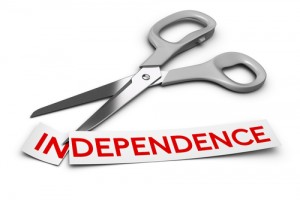 In the field of drug abuse and addiction rehabilitation, “dependency” means that a person has come to rely on drugs or alcohol. He or she has a strong sense of needing to use drugs to maintain a lifestyle or a certain level of well-being. The body and mind can even send imperatives to the person that he needs to keep on using drugs.
In the field of drug abuse and addiction rehabilitation, “dependency” means that a person has come to rely on drugs or alcohol. He or she has a strong sense of needing to use drugs to maintain a lifestyle or a certain level of well-being. The body and mind can even send imperatives to the person that he needs to keep on using drugs.
When the person has fallen into a state of constant use and “needing” to continue, he can be said to have a dependency. Here are five signs that you can look for to indicate that a person has become dependent on drugs.
Physical Signs of Drug Dependency
The main type of dependency is a person having a physical connection with drugs or alcohol. This is the man that has to have a beer every night after work or the college student that uses illegally-bought Ritalin before every night’s study session. These people feel a strong command from their bodies to continue using the drug, and they are often given away by physical signs that are different for every drug. Just one example is the “junkie” that has to scratch a constant itch that doesn’t even really exist.
Emotional Dependence on Drugs
An emotional dependence on a drug is the feeling that a person wants to keep on using it to maintain the way he or she feels or thinks. Marijuana users, for example, like the way they feel when they’re high. The drug doesn’t actually create much of a physical dependence (although it does in a small minority of users.) Rather, the drug creates a state that the user wants to go back to again and again. Because of this desire, he can be said to have an emotional dependence on the drug.
Easy access
It’s not always easy to see or feel what an addict is going through. You might not be able to tell that a person is physically or emotionally dependent on a drug, so you have to look for other, more subtle signs. One such sign is the person’s access to a drug. If someone you know always has a lot of liquor in the cabinet or beer in the fridge, this could be a sign that the person has a dependence on drinking. Likewise, a person that constantly hangs out with people that snort cocaine could have a dependence on it despite her protestations that she doesn’t use drugs.
Drug Tolerance
Another sign of dependence is that the person has become tolerant to a drug. When you use a drug for too long, it starts to not have much of an impact on you when you take it. If a person abuses prescription painkillers, for example, the pills will not have as much of an effect over time. The person will have to take higher quantities or just use the drug more often in order to reach something like the same effect. If you noticed that someone was growing tolerant to painkillers or even alcohol (statements like “Oh, it takes at least five shots before I feel anything”) can strongly indicate that the person is dependent on that drug.
Denial of Addiction
Once you’ve noticed some of these signs, you might be tempted to talk to the person about their potential drug habit. If you’ve seen proof that the person occasionally uses drugs (but aren’t sure that he or she is actually dependent on them), one strong sign can be whether or not the person owns up to his actions. A person that is in denial about using drugs or the effect that they have may have a strong dependency on them.
Source: